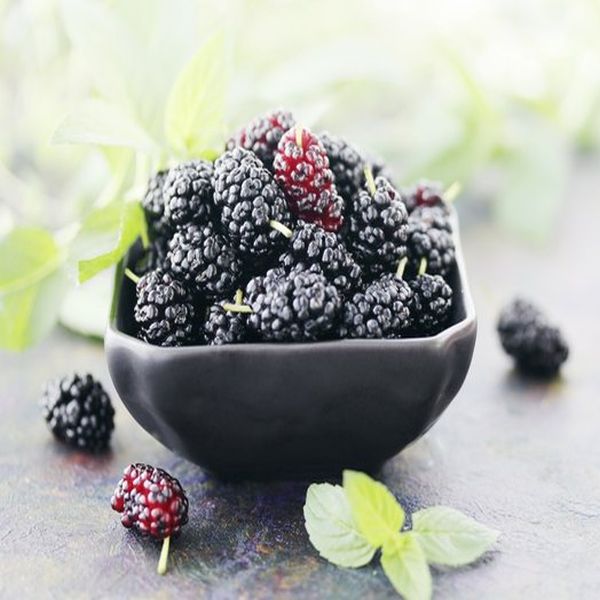Red mulberry is a medium sized tree (50 feet tall and 1 to 1 1/2 feet in diameter) with wide spreading branches and a wide rounded shape. It is a lowland tree, occurring mainly in river valleys, ravines, and moist sheltered slopes. Red mulberry is a shade tolerant species often growing in the understory of woodlands with sycamore, elms, boxelder, cottonwood, green ash, and black walnut.
Mulberries are also often confused with blackberries. However, when comparing mulberries vs. blackberries, there are many notable differences. Blackberries are grown in bushes, belong to an entirely different family of plants, have a more round shape and contain over three times the fiber. Still, both are low in calories and high in nutrients like vitamin C and vitamin K.
Memory Enhancement
The flavonoids in mulberry fruit may enhance your memory, according to researchers from a study published in “British Journal of Nutrition” in 2012. They gave an extract from the berries of the mulberry plant to mice and found that mice that consumed more mulberry fruit extract experienced better regulation of the nerve growth factor in the hippocampus, a portion of the brain crucial for memory. They also recognized objects more quickly, suggesting that mulberry fruit extract may improve cognitive response time.
Blood Sugar Regulation
Authors of a review paper published in “Diabetes Care” in 2007 found that mulberry leaf extract is effective for lowering blood sugar. They cite a study in which 20 people — 10 with diabetes — took a daily dose of sucrose with either mulberry extract or a placebo. After a week, the researchers switched the groups’ treatments for one week. Throughout both weeks, they found that those who took mulberry extract experienced significantly lower blood sugar within two hours than those who didn’t take mulberry extract.
Cancer Prevention
Mulberry leaf extract may prevent or treat some types of cancer, according to a group of Korean researchers who published a study in “Nutrition and Cancer” in 2012. They found that mulberry leaf extract inhibited the growth and activity of cancer stem cells, a subpopulation of cells that may be the site of origination for most types of cancer. The researchers concluded that mulberry leaf extract may eventually be used in therapeutic cancer prevention programs.
Post time: May-21-2020
